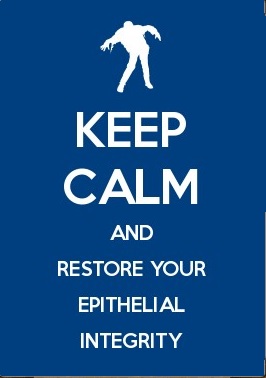Lauren wrote to me and wondered how I had the energy and clarity to build the website. I really don't know. It just came out that way.
But I think when you recover you will understand.
The most common experience seems to be, "I didn't even know how bad I felt until I got better."
And after a couple wheaty misadventures, it becomes as clear as anything could possibly be:
It's NOT in your head.
It's in the damn bread.
You don't have to be a science nerd to understand that kind of cause and effect.
It's life changing. It makes you want to tell everyone. Nobody will want to listen, but you wlll tell them anyway.
You'll see.
Saturday, August 29, 2009
Thursday, August 27, 2009
Correlation Games
According to the Gallup-Healthways Well-Being Index daily poll of the US population, taller people live better lives, at least on average. They evaluate their lives more favorably, and they are more likely to report a range of positive emotions such as enjoyment and happiness. They are also less likely to report a range of negative experiences, like sadness, and physical pain, though they are more likely to experience stress and anger, and if they are women, to worry. These findings cannot be attributed to different demographic or ethnic characteristics of taller people, but are almost entirely explained by the positive association between height and both income and education, both of which are positively linked to better lives.
My turn:
Short stature may indicate predisposition to neurological impairment. Short people may actually be at a physiological disadvantage and more prone to mood problems.
My turn:
Short stature may indicate predisposition to neurological impairment. Short people may actually be at a physiological disadvantage and more prone to mood problems.
Tuesday, August 25, 2009
Saturday, August 22, 2009
Vague Nagging Feeling
Well, it was anyway- now I'm really kind of concerned.
A suspected zombie friend of mine told me last week that he is back on Atkins. We both were doing it when I was still working. Anyhow, for some reason it troubled me and I just realized why.
One of the saving graces of Narcolepsy is that the orexin cells are glucose sensitive. Some of them are highly sensitive and therefore shut down before the antibodies can infiltrate them and kill them. This leaves at least a few of them surviving. (Please see the cataplexy section of my Narcolepsy paper for a more thorough explanation.)
I suspect that if you lower your blood sugars enough, those extra-sensitive cells don't shut down as often and are then susceptible to antibody damage. In general a low-carb diet restricts gluten, but not completely. Many low carb items contain small amounts of gluten- like salad dressings or soy sauce. This is enough to trigger your immune system to produce substantial quantities of antibodies.
So, although your symptoms may improve- if you are gluten intolerant, it may be that restricting your carbs without eliminating gluten may be even more catastrophic over the long term.
Now that I think of it- this may have been a contributing factor in my dementia...
Anyhow, I can't say for sure, but it's definitely something to consider.
A suspected zombie friend of mine told me last week that he is back on Atkins. We both were doing it when I was still working. Anyhow, for some reason it troubled me and I just realized why.
One of the saving graces of Narcolepsy is that the orexin cells are glucose sensitive. Some of them are highly sensitive and therefore shut down before the antibodies can infiltrate them and kill them. This leaves at least a few of them surviving. (Please see the cataplexy section of my Narcolepsy paper for a more thorough explanation.)
I suspect that if you lower your blood sugars enough, those extra-sensitive cells don't shut down as often and are then susceptible to antibody damage. In general a low-carb diet restricts gluten, but not completely. Many low carb items contain small amounts of gluten- like salad dressings or soy sauce. This is enough to trigger your immune system to produce substantial quantities of antibodies.
So, although your symptoms may improve- if you are gluten intolerant, it may be that restricting your carbs without eliminating gluten may be even more catastrophic over the long term.
Now that I think of it- this may have been a contributing factor in my dementia...
Anyhow, I can't say for sure, but it's definitely something to consider.
Tuesday, August 18, 2009
Thursday, August 13, 2009
Two Years
Happy Glutenversary to Me.
Only had one incident this year- Swedish Fish candy. The manufacturer says it's gluten free, but it's not. I had TMJ and depression for two days. Looked online and found several other gluten sensitive people who had reactions too.
Other than that- It's been a very good year.
Truly Unbelievably Good.
Only had one incident this year- Swedish Fish candy. The manufacturer says it's gluten free, but it's not. I had TMJ and depression for two days. Looked online and found several other gluten sensitive people who had reactions too.
Other than that- It's been a very good year.
Truly Unbelievably Good.
Subscribe to:
Posts (Atom)

